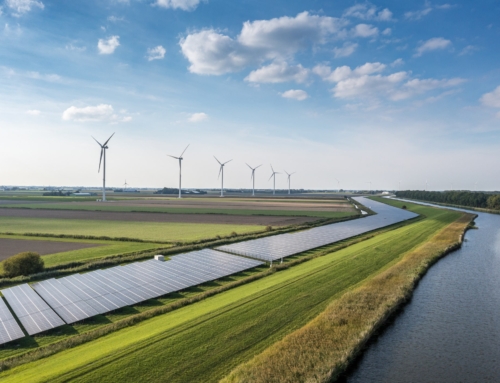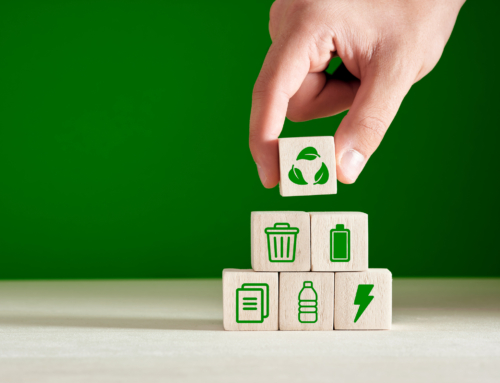HVAC systems are vital to keeping indoor temperatures comfortable. But just like any other mechanical equipment, they need routine maintenance to keep them in good condition and working efficiently.
Let’s take a look at some essential tasks that you should have on your HVAC maintenance checklist.
Things to Do in Your General HVAC Maintenance Checklist
There are several things you can do regularly to help with the maintenance of your HVAC system.
Check on the Thermostat
The thermostat controls and monitors the temperature in your home so that the HVAC unit is at the setting you want. Checking on it occasionally will let you know if it accurately follows your settings or if it takes longer than usual for your HVAC system to respond to it.
Replace the Air Filters
Your HVAC’s air filters prevent dust, dirt, and other pollutants from entering the system. This keeps the unit cleaner for a longer time and ensures that the air blowing out of it is clean. However, filters will eventually get clogged from collecting too much dirt, so they need replacing once this occurs.
Inspect and Clean Air Ducts
Ductworks can accumulate dirt and debris over time as air flows through them. Worse, they could also have leaks that let air escape or become an entry point for pests, reducing your HVAC’s efficiency and the air quality indoors. You can schedule a regular inspection and maintenance to ensure the duct stays clean and leak-free.
Look for Refrigerant Leaks
Refrigerants are substances that circulate inside HVAC units. They constantly absorb heat from the indoor air and transfer it outdoors, which helps cool the room down. If you have a heat pump, the refrigerant can absorb air from outside and warm the indoor areas.
A leak in the refrigerant line can significantly reduce the amount of available refrigerant, lowering your HVAC’s capacity to absorb heat. This problem causes the unit to take more time to cool your home down or warm it up.
Clear the Space Around Outdoor Units
Depending on the type of HVAC system, the outdoor condenser unit emits or takes in hot air. In either case, there’s plenty of heat circulating around it. The outdoor unit shouldn’t have anything nearby obstructing airflow, such as fallen branches or shrubs. If the hot air can’t escape, you risk overheating the outdoor unit.
Maintenance Tips for Cooling Systems
Cooling systems like air conditioners have their own maintenance needs. Here are two essential maintenance tasks you should not overlook:
- Clear the AC’s drain line often. The line can clog up due to algae that grow from the moisture. A clog can cause water to flow back up the line and damage the AC’s parts.
- Comb the AC’s fins. Condensers and evaporators have coil fins where the air passes through. They often get bent, which can obstruct airflow. You can use a tool called a fin comb which will straighten them back.
Maintenance Tips for Heating Systems
Likewise, furnaces and other heating systems also have special needs. Make sure you are:
- Watching for gas leaks. Furnace gas may have toxic fumes such as carbon monoxide, which can cause health problems, including breathing difficulties, chest pains, and nausea. Prolonged exposure can be fatal.
- Checking the pilot light. The pilot light is the mechanism that provides the flame for igniting the furnace’s burners to generate heat. Ideally, the flame should always be on and colored blue. If it’s out or has a different color, the pilot light may be broken, or the burner assembly is dirty.
- Bleeding the boiler radiator. This means releasing the air inside an unvented heating system. Too much air inside the boiler can prevent it from fully heating up. The task should be done at least once a year.
Dealing with Extreme Temperatures
Does your area experience extremely hot or cold weather? Here’re a few tips to put less strain on your HVAC unit.
On hot days, you can:
- Hose down the outdoor condenser unit several times to keep the unit cool and prevent overheating.
- Close the curtains or blinds to keep sunlight and heat from entering the home. This tactic helps maintain the cool indoor temperature and puts less work on the AC.
- Turn the thermostat down at night. Outdoor temperatures are usually cooler by then, so your AC unit doesn’t need to work as hard indoors.
On cold days, you can:
- Turn the heater thermostat down around three to five degrees and leave it be. Lowering it too much when you’re away and cranking it back up when you’re home makes your heater work harder to warm up again.
- Ensure all doors and windows are closed as often as possible to prevent heat from escaping the house.
- Insulate your home to increase indoor heat without having to turn up the thermostat.
How Often Should You Have Your HVAC Serviced?
As a rule of thumb, it’s best to schedule your cooling and heating maintenance service at least once a year, particularly before seasons when the unit will be needed most. For heating equipment, you’ll want to make sure they’re ready for the winter. Meanwhile, air conditioner units will need servicing before summer comes.
Learn How to Be More Energy Efficient
The Kiwi Guard HVAC Option at Kiwi Energy will cover any unanticipated repairs to your system. Contact us to learn more today!
While heating and cooling maintenance are essential for an energy-efficient home, there are more ways to reduce your power consumption. Looking for more ideas and inspiration on how to cut back on your household energy usage and reduce your environmental footprint? ? Then be sure to check out our blog. With topics ranging from recycling to nuclear energy, we’ve got you covered. Indeed, an HVAC surge protector is a considerable investment for your home.






